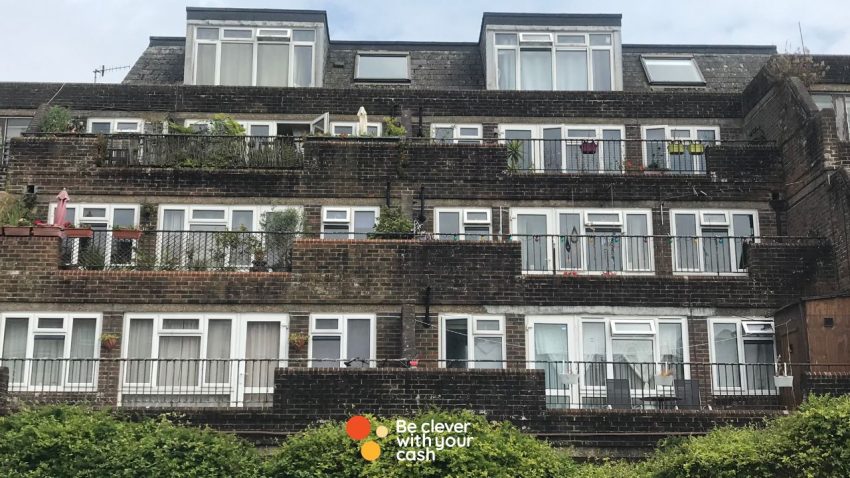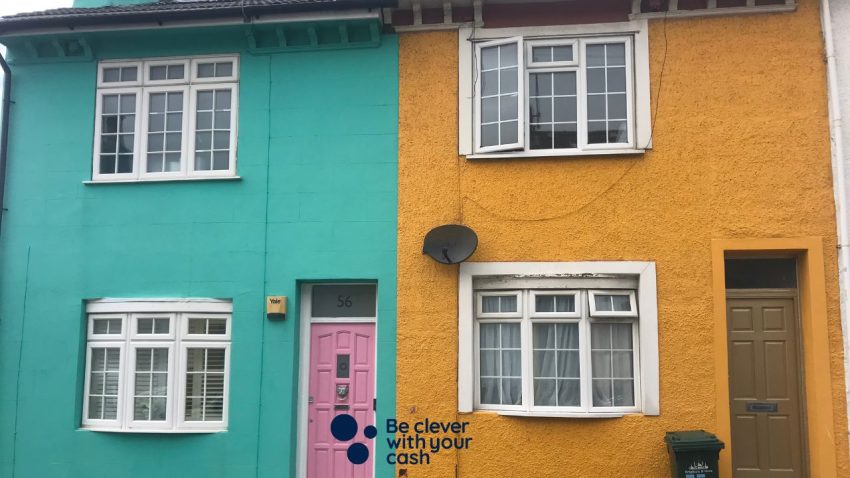Buying your first home shouldn’t start with arranging property viewings
If you want to buy your first home, taking the right steps to prepare for your mortgage application can speed up the process and position you as a more attractive prospect to lenders.
Some articles on the site contain affiliate links, which provide a small commission to help fund our work. However, they won’t affect the price you pay or our editorial independence. Read more here.
Keep stable employment
Lenders like stability. A recent job change can make them wary about your financial security, especially if you’re still in a probation period or have switched to a different industry. Most lenders will look for a stable two-year employment history.
If you’ve had any employment gaps, the lender may ask you to provide additional information so they can understand the situation in more detail. If you haven’t been in your current job for more than two years, it doesn’t automatically mean you’ll be declined, but lenders will most likely ask you for more detail about your work history.
Plan your deposit
The size of your deposit will affect your loan-to-value (LTV) percentage which is the ratio between the amount you owe and the value of your property. Let’s say you were buying a house for £250,000 and you had a deposit of £50,000. Taking out a mortgage for £200,000 would mean your LTV is 80%, as you’re putting down 20% of the total property price as a deposit.
A lower LTV usually means you can get better interest rates, which means your monthly payments will be lower and you’ll pay less interest overall. It’s great if you already have a deposit saved, but with the cost of living and rent prices, this is hard for many people to do. But there is a way to make your savings go further and build up your deposit faster.
One of the best paying savings accounts for first time buyers is a Lifetime ISA (LISA). You’ll get a 25% bonus when you add money, up to £1,000 each financial year. Andy wrote a great guide to Lifetime ISAs with everything you need to know. Other common ways for getting a deposit together are sale of assets like a car, work bonuses and monetary gifts from family.

Try our mortgage calculator
Our mortgage calculator helps simplify things by giving you an idea of how much you could borrow and your likely monthly repayments.
Avoid applying for new credit
Applying for credit in the six months leading up to your mortgage application could negatively impact your credit rating. That includes current accounts, credit cards, loans, and even things like new mobile phone contracts.
Lenders could view extra applications as a sign of financial instability or too much debt compared to your income, which may sway their decision against you.
Get your paperwork ready
Lenders and brokers have to see proof of identity and income to verify who you are. They’ll usually ask for a driving license or passport to check your identity. If you don’t have either of those, ask the lender or broker what other forms of ID they can accept. Check you have original documents for the last three months’ payslips, bank statements and anything else the lender asks you to bring to the appointment.
If you’re receiving a monetary gift for your deposit, lenders usually ask for a letter from the person gifting the money to confirm it’s not a loan and won’t need to be repaid. They may also ask for a bank statement from the person giving you the money to prove where it came from.
If you’ve changed your name, you’ll most likely need your deed poll certificate or marriage certificate. Check that everything else is in your new name and if not, get it changed. Different names on your accounts and bills can mean potential delays in your application because lenders can’t match everything up so easily.
Get the best of our money saving content every week, straight to your inbox
Plus, new Quidco customers get a high paying £18 welcome offer

Remove old financial associations
Your financial associations could affect your ability to get a mortgage. For example, if you had a joint account with an ex-partner, their credit history could still be linked to yours. If they haven’t managed their credit very well, it could impact your ability to borrow.
To remove old associations, email the credit agency and provide documentary proof which could be account closure confirmations or end of tenancy letters so they can update your credit reports.
Close unused accounts
If you have unused credit accounts, it might be best to close them as lenders can view this as having access to too much credit that you don’t need.
The only thing to be mindful of is that if you’ve had some credit accounts for years, it’s worth keeping some of them open. Closing them can reduce the average age of your credit history and potentially lower your overall score.

Compare mortgage rates and deals
Looking for a mortgage? Find the top rates from over 200,000 deals and 100+ lenders with our live tables.
Check you’re on the electoral roll
Lenders use the electoral roll to confirm your address and help them trace your credit history. If you’re not on the electoral roll (also known as being registered to vote), then it’s unlikely lenders will progress your application. You can get added to the electoral roll on the YouGov website.
Prepare your budget
Lenders have to trust your ability to manage your money and repay a mortgage. Whether you’re applying directly to the lender or via a broker, they’ll want to review your finances in great detail.
In the three months before you want to have an application appointment, get to know your finances inside out. Take a close look at your bank statements so you know exactly where your money’s going. Is there anything you can cancel to free up more of your money? Perhaps a gym membership you don’t use or a TV streaming subscription you rarely watch.
At your mortgage application appointment, you’ll be asked to confirm how much you want to borrow. Even if you have a Decision in Principle for a certain amount (more on this below), double check your entire budget to make sure you’re comfortable you’ll be able to pay the monthly installments.
Create a new budget that includes expenses you’ll still have as a homeowner like your mobile phone bill, car expenses and food. Then factor any new costs into your plan. For example, if you’re renting right now, your landlord will arrange gas safety checks and services each year for you.
But as a homeowner, you’ll pick up this expense which could total around £190. Our sister site, Smart Money People wrote a great guide that covers the hidden costs of homeownership to help with your planning.
 Featured switching deal
Featured switching deal
 Customer rating
3.8/5
Customer rating
3.8/5
- Switch bonus£200
- Offer endsUnknown
- FSCS Protected? Yes
- Bonus requirements Switch using the Current Account Switch Service and close your old account within 60 days of starting the switch
- Deposit requirements Deposit £1,500 in the first 60 days from opening the account
- Direct debits transferred over Set up two Direct Debits before or after the switch from a selected list of household bills
- Existing customers? Can't have held any Santander current account on 1 January 2025
- Restrictions Can't have received a switching bonus from Santander already, offer limited to once per person
- Eligible accounts Open a new or hold an existing Everyday, Edge, Edge Up or Edge Explorer current account
Avoid large cash deposits where you can’t prove the source
Lenders have strict anti-money laundering policies so any large, unexplained cash deposits into your current or savings accounts will need further investigation. Make sure any cash deposits are backed up with documentation like bank statements from the sender or invoices to prove where the money came from.
How do you apply for a mortgage?

Now you’ve taken all the steps to prepare, you’re ready to apply for a mortgage. You can apply straight to the lender of your choice or you can use a mortgage broker. Some mortgage brokers only work with certain lenders, giving you less choice, while others will search the entire market to get you the best deal.
Most lenders and brokers offer an initial appointment so they can explain more about the mortgage application process so you know what to expect. The mortgage application process starts when you apply for a decision in principle (DiP), also known as an agreement in principle (AiP).
A DiP lets you know if a lender would be willing, in principle, to offer you a mortgage for a certain amount. You can apply for a DiP over the phone, in-person or online (depending on the broker and lender) and the whole application takes less than 15 minutes. You’ll be asked some basic questions about your income, expenditure and how much you’d like to borrow and you get an instant decision.
DiPs don’t affect your credit score, so you can apply for as many as you like with different lenders. A DiP isn’t a guarantee that you’ll get the mortgage, it’s just an indication of what could be available to you.
When you have your DiP, the next step is to formally apply for the mortgage. If you’re working with a broker, you’ll have a meeting with them either in-person, over the phone or online where they’ll complete the full mortgage application with you. If you’re applying straight to a lender yourself, you’ll be invited to an appointment with one of their mortgage advisors to complete your application.
Important
*Your home may be repossessed if you do not keep up repayments on your mortgage. Be Clever With Your Cash may receive a payment from Tembo Money if you complete a mortgage through the link provided. This will not affect the amount you pay for the service.
This broker fee discount of up to £499 is applicable for standard mortgages and remortgages only, more complex cases including guarantor, buy-to-let, adverse credit, and equity transfer may be liable for a fee. The fee you are required to pay will be clearly outlined by your adviser prior to an application being submitted on your behalf. The offer does not cover any other potential fees that may arise during the mortgage process.
Tembo Money Limited (12631312) is a company registered in England and Wales with its registered office at 18 Crucifix Lane, London, SE1 3JW. Tembo is authorised and regulated by the Financial Conduct Authority under the registration number 952652. Tembo Money was awarded Best Mortgage Broker at the British bank awards in 2022, 2023, 2024 and 2025. Rates are not guaranteed and may change by the time you come to apply. Eligibility criteria may vary by lender.
Our calculator is only an estimate of how much you are able to borrow and does not constitute mortgage advice





